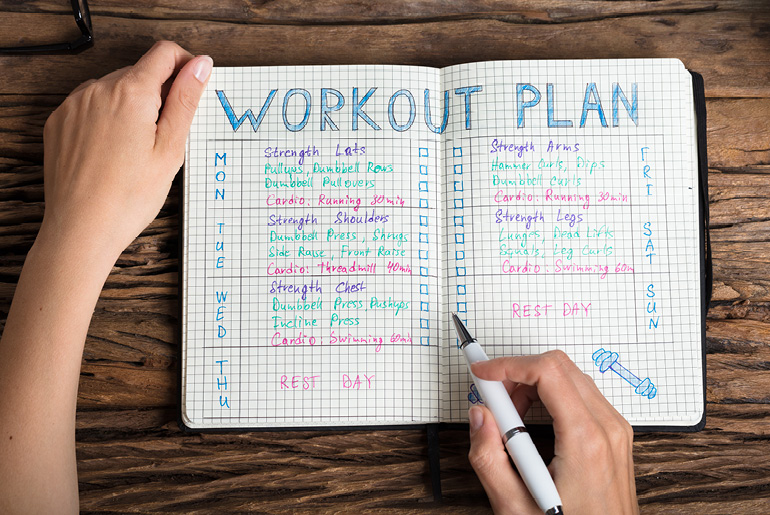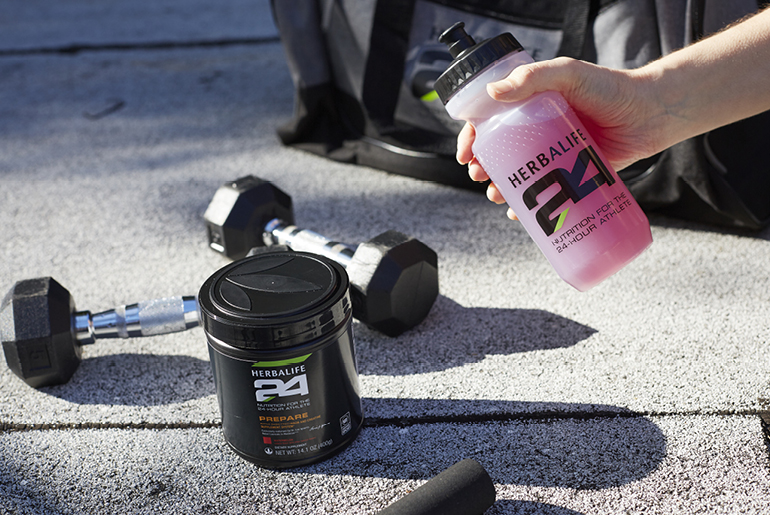How to create a personalised weekly exercise plan

How much exercise you need depends on your overall goal. What may be a good weekly exercise plan for you may not be the best for someone else. Let me guide you to find a nutrition and fitness plan that works best for your own schedule and current fitness level.
How much exercise do we need?
There are several sources that recommend 30 minutes five times a week for weight loss and general health. This is classified by moderate to vigorous physical activity.
However, let’s say your goal is to run a marathon. In this case, you’ll need to train for a lot longer than 30 minutes at a time. If your goal is to lose weight or improve your overall fitness level, 30 minutes may be all you need.
Invest more time to personalise your workout.
I believe that although a workout time of 30 minutes is adequate for achieving the health benefits associated with exercise, you should attempt to schedule a longer workout.
Here’s why:
- Approximately 50-60 minutes per day will allow you to have an additional focus on yourself.
- This extra time could be used for a warm-up and cool-down.
- You won’t have to speed through your workout. Take a breath, stay hydrated, and integrate workout supplements into your plan as needed.
- You could develop a habit of writing in an exercise journal.
- You’ll have more time to prepare a healthy post-exercise snack.
Know your limits: why over-exercising can be counterproductive
When it comes to exercise, too much of a good thing can spoil it. Overdoing your workout can be just as harmful as not doing any at all. Here are several reasons why doing too much exercise can set you back:
Excessive exercise can stall your weight loss goals.
Taking your fitness to the extreme may slow down your metabolism, and that’s because your body tries to conserve precious energy, causing you to burn fewer calories. In addition, maxing out your intensity level without sufficient breaks may stimulate the release of cortisol, a stress hormone linked to weight gain.
Your muscles need to recover.
Exercising promotes small tears in your muscle fibres, and as they heal your muscles grow. Without a sufficient healing period and adequate nutrition, your muscles won’t regenerate properly. Instead, you should set apart time to rest, stretch, and refuel, so your muscles can recover faster.
Excessive exercise can be bad for your overall health.
Severe cases of over-exercising can lead to exhaustion, dehydration, serious injury, and even rhabdomyolysis – a condition that occurs when muscle tissue breaks down and muscle fibres enter your bloodstream, potentially damaging your liver.
How much exercise is too much?
Restricting your hard workout regime to 3-4 days a week and allowing a rest day or two is a great idea. You need to be conscious to combine an intense exercise regime with great nutrition as well.
Develop a consistent exercise plan each week
I encourage you to get active, and to keep a journal to monitor your minutes to make sure you’re hitting your minimum goal each week. If you’re an avid exerciser, make sure you take time to recover.
Here is my personal workout-rest schedule to give you an idea of how I plan my week:
- Monday: Running and gym, high-intensity level
- Tuesday: Cycling and yoga, moderate-intensity level
- Wednesday: Bodyweight interval training, high-intensity level
- Thursday: Active rest day for fun walk or hiking, low-intensity level
- Friday: Cycling and running, moderate-intensity level but long duration
- Saturday: Active rest for family fun swimming, paddle boarding, low-intensity level
- Sunday: Rest
I usually adjust my intensity level and workout duration to ensure my workout is stress-free and fun.
By SAMANTHA CLAYTON
OLY, ISSA-CPT
Vice President,
Worldwide Sports Performance and Fitness





